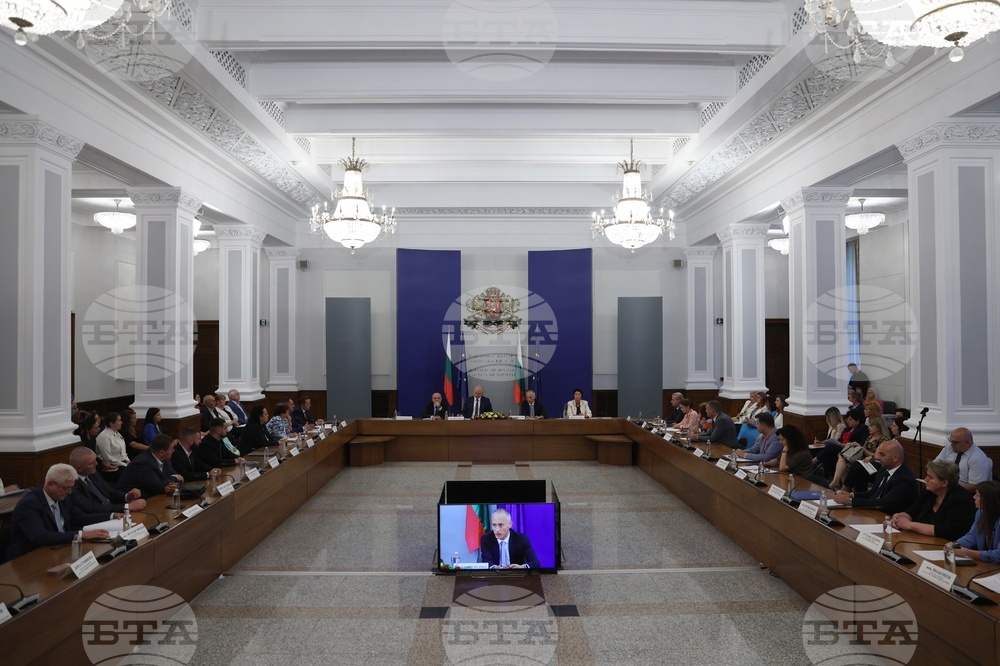site.btaCouncil of Ministers Hosts Meeting of Coordination Unit on Dropout Prevention Mechanism


The Council of Ministers Thursday hosted a meeting of the coordination unit responsible for implementing a mechanism for joint work of institutions on the coverage, inclusion and prevention of dropping out of the educational system of children and pupils in compulsory preschool and school age.
Attending the meeting were Prime Minister Rosen Zhelyazkov, Deputy Prime Minister Tomislav Donchev, Education and Science Minister Krasimir Valchev, deputy ministers, regional governors, heads of agencies, and representatives of the National Association of the Municipalities in the Republic of Bulgaria, among others.
Prime Minister Zhelyazkov announced the resumption of the unit's regular meetings, noting that its last meeting at the Council of Ministers was held in 2023. Zhelyazkov said that some 74,000 children were brought back to school when the mechanism was introduced in 2017, adding that this achievement had placed Bulgaria among the top 16 EU Member States on this indicator. He added that the unit's meetings "will be coordinated by scope, beginning with all territorial structures of state power." "Each region will have a specific action plan with clear deadlines and will be required to do actual monitoring," Zhelyazkov said. The single-person authorities of central-government state power will be fully engaged, he noted, adding that the Interior Minister will be tasked with scheduling a national meeting of regional police chiefs where the issue will be addressed and specific tasks will be assigned. He stressed the key role of the Labour and Social Policy Ministry in the process and announced the launch of a national campaign for the prevention of teen pregnancy, which remains a major factor behind lack of education in certain communities. Zhelyazkov also instructed the Ministry of Regional Development and Public Works to ensure the national population database is kept up to date and that municipalities exchange information. He said that the Education and Science Ministry must increase oversight of actual school attendance and crack down on fictitious enrollments and assigned Deputy Prime Minister Tomislav Donchev responsibility for coordinating institutional cooperation.
Deputy Prime Minister Tomislav Donchev said that "in gross terms, some 116,000 children have been brought back to school or have enrolled for the first time." "In net terms, this figure drops to 75,000, as some of those who return eventually drop out again," he added. He acknowledged that the mechanism does not operate with the needed intensity and that there is room for improvement. "Our task is to ensure that the measures, which have been in place for eight years, are implemented with the same level of intensity everywhere in the country," Donchev added.
Education and Science Minister Krasimir Valchev stressed the crucial importance of focusing on preschool children, especially those from vulnerable groups, before the new school year begins. Over the years, compulsory preschool education has been introduced first for six-year-olds, then five-year-olds, and four years ago for four-year-olds. Research shows that early enrollment in kindergarten significantly improves educational outcomes, especially for children from families where Bulgarian is not spoken and where educational responsibility may be lacking. These children perform better, advance further, and are better prepared for first grade, Valchev said. The Minister pointed out that for the first time last year, Eurostat reported that Bulgaria’s rate of early school leavers - defined as individuals aged 18 to 24 who have completed at most lower secondary education - is below the European Union average. He attributed this improvement to the dropout prevention mechanism and emphasized the need to maintain these efforts, as the rate of 9.3% reported by Eurostat still means around 5,000 children drop out from every school cohort before graduating. The Minister identified the increase in the average years of schooling among children from Roma communities as a positive development. While previously many dropped out after eighth grade, the average dropout point has shifted to the tenth grade, he said.
/IV/
news.modal.header
news.modal.text